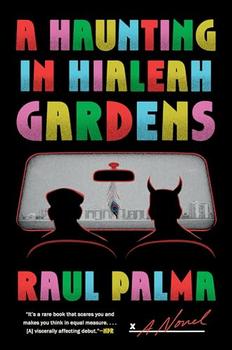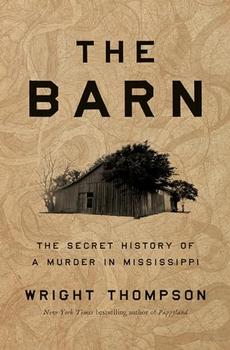Summary | Excerpt | Reading Guide | Reviews | Beyond the Book | Read-Alikes | Genres & Themes | Author Bio

This article relates to The Testaments
 Margaret Eleanor Atwood was born in Ottawa in 1939. Although best known for her speculative fiction, she's the author of more than 40 books, including works of fiction, poetry, short stories, children's works and critical essays.
Margaret Eleanor Atwood was born in Ottawa in 1939. Although best known for her speculative fiction, she's the author of more than 40 books, including works of fiction, poetry, short stories, children's works and critical essays.
Atwood's desire to be a writer stems from a revelation she had at the age of 16. As she was walking across her high school's football field, she composed a poem in her head. At that point, as she has stated in a recent interview with the Guardian, she decided she was a writer. After receiving her B.A. at the University of Toronto and a Masters at Radcliffe, she moved back to Canada to teach English at the University of British Columbia in Vancouver, publishing her first book in 1961, a poetry collection entitled Double Persephone (which she self-published, hand setting the type herself). Her first novel, The Edible Woman, followed in 1969.
The Handmaid's Tale (1985), Atwood's sixth novel, is arguably her most famous work. It has sold more than eight million copies in English alone and has never been out of print. It won the 1985 Governor General's Literary Award for English-Language Fiction, one of Canada's leading book prizes, as well as the very first Arthur C. Clarke Award in 1987; it was also nominated for both the 1986 Booker Prize and the 1986 Nebula Award. It's a mainstay of many high schools' honor courses, but it's also one of the books most frequently challenged by parents because of its sexual content and what some perceive as its negative portrayal of Christianity.
The novel, set in a near-future New England, depicts a totalitarian state that has replaced the country's democracy. Now called the Republic of Gilead, it has become a theonomy ruled solely by men, with women relegated to the role of producing offspring only. High-ranking couples who can't produce a child of their own are provided with a "handmaid" – a type of concubine (see Genesis 30:1-3 for the Biblical verse used to justify this). The narrator of the novel is one such handmaid.
Atwood began writing The Handmaid's Tale while living in West Berlin in 1984, taking advantage of a grant that provided funding for filmmakers, writers and musicians to live in the city. "At that time it was a very dark, empty city, by which I mean there were a lot of vacant apartments," says Atwood. "People didn't want to live there, because it was surrounded by the wall. They brought in foreign artists to be there just so people wouldn't feel so cut off." While there she also had the opportunity to visit various totalitarian regimes in East Germany, Czechoslovakia, Poland and Romania, which further influenced the direction of her novel. In an interview with CBS she explains:
It informed the atmosphere but not the content [of the book] ... The experience of having people change the subject, being fearful of talking to you, not knowing who they can trust, all of that was there.
She was further inspired to write the novel in response to those who wanted to reverse the freedoms women gained in the 1970s, particularly with regard to reproductive rights (those of us of a "certain age" clearly remember the power of the "Moral Majority" and its influence on policy during the Reagan presidency).
The book was generally considered a critical success after publication, although it was launched with little fanfare ("A big fuss was not particularly made. I think we had some sort of publisher's party," says Atwood). It was not universally loved, however, with some critics feeling the world she imagined wasn't possible (one review by New York Times columnist Mary McCarthy dismissed it as "powerless to scare," and called its premise unbelievable). When asked about the book's reception in an interview Atwood responded, "When I was writing it, we were still in an age in which America was seen as a beacon of light, of liberal democracy, a model for the rest of the world ... We're not there anymore, because the rest of the world has changed and so has America. That is why I think people are seeing The Handmaid's Tale as more possible than they did when it was first published."
Over the decades since it first hit the shelves, The Handmaid's Tale has been adapted into an opera, a ballet and a graphic novel. It was also made into a movie in 1990, with the screenplay by Harold Pinter and directed by the Academy Award-winning Volker Schlondorff. Conceived as an erotic thriller, it starred Natasha Richardson as the Handmaid, Robert Duvall as The Commander, and Faye Dunaway as Serena Joy; it was a flop. In 2017 Hulu TV debuted a series based on the novel. The first season won eight Primetime Emmy Awards from 13 nominations, and the series, now in its third season, has been renewed for a fourth. Atwood is a consulting producer on the show (and even made a cameo as one of the Aunts) but has no veto rights over content. She cooperated with the show's writers while penning The Testaments, however, to make sure their scripts for forthcoming episodes wouldn't unwittingly contradict the events of her follow-up novel.
Photo of Margaret Atwood courtesy of ActuaLitté.
Filed under Books and Authors
![]() This "beyond the book article" relates to The Testaments. It originally ran in October 2019 and has been updated for the
September 2020 paperback edition.
Go to magazine.
This "beyond the book article" relates to The Testaments. It originally ran in October 2019 and has been updated for the
September 2020 paperback edition.
Go to magazine.




A library is thought in cold storage
Click Here to find out who said this, as well as discovering other famous literary quotes!
Your guide toexceptional books
BookBrowse seeks out and recommends the best in contemporary fiction and nonfiction—books that not only engage and entertain but also deepen our understanding of ourselves and the world around us.